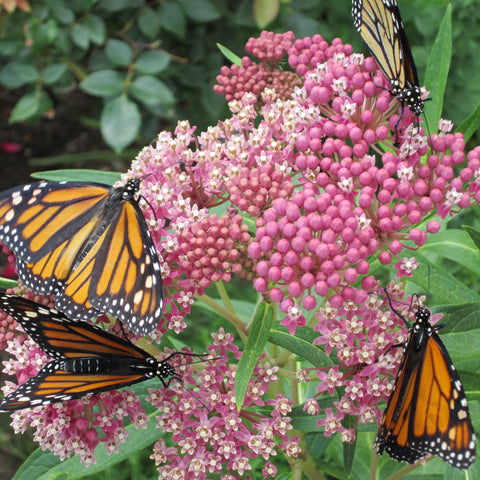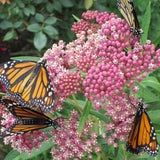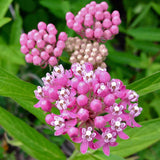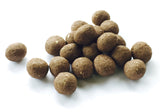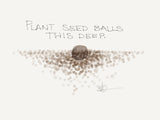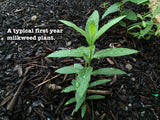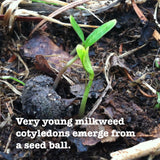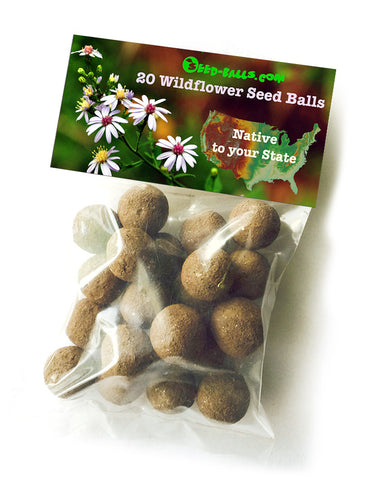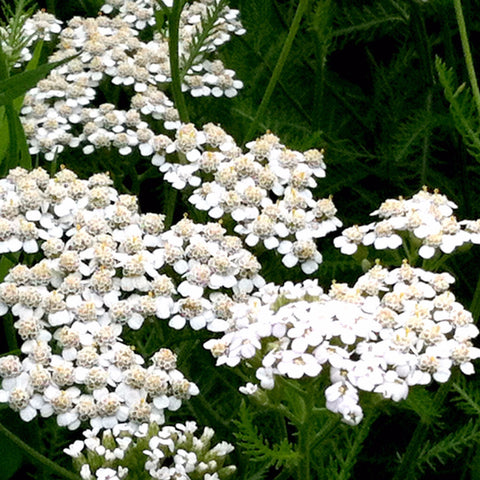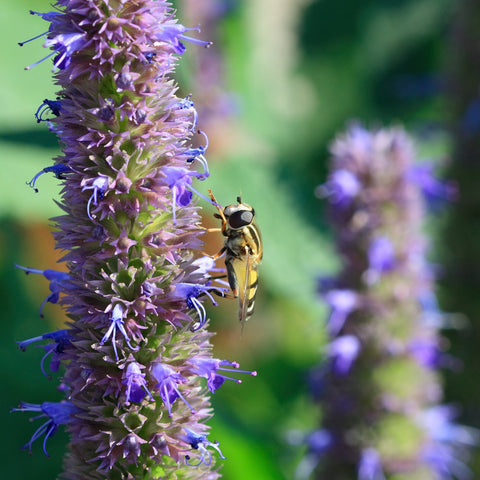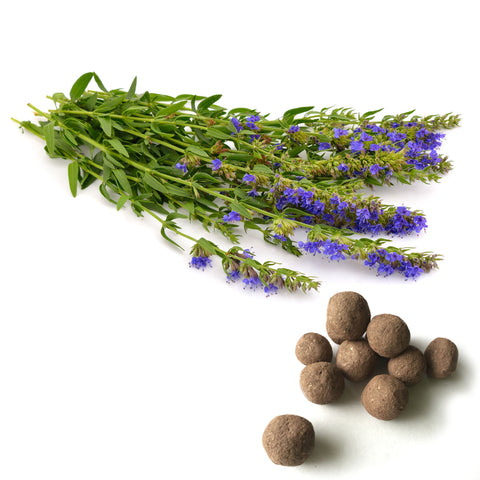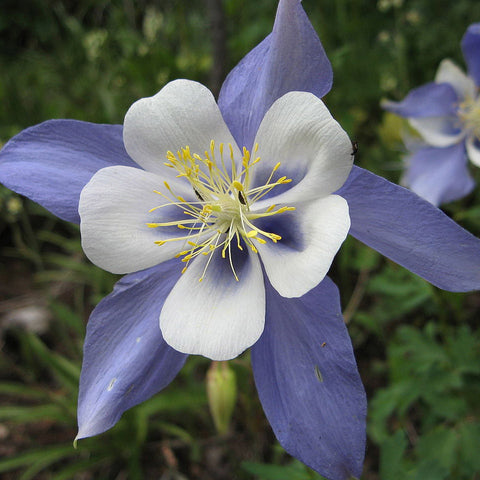Asclepias incarnata, Swamp Milkweed Seed Balls
Attract bees, butterflies, and birds to your backyard with Swamp Milkweed (Asclepias incarnata). This smaller milkweed (24" tall) has impressive bright pink flowers that attract butterflies par excellence! If you have rich moist soil in a sunny spot, don't miss the opportunity to support Monarchs and have a show shopper in your garden! An absolute favorite of the Monarch butterfly, Swamp Milkweed requires rich soils that remain moist year round. A gorgeous US native wildflower for pollinator and habitat gardens.
The fiber in the stem of this and other milkweeds can be used to make cord, however, it is far more valuable as Monarch and pollinator habitat.
Plant outdoors Fall. Seeds will germinate when conditions are optimal. In good conditions, flowers appear the second year.
DETAILED INFORMATION
• A perennial
• Native to Central and Eastern US
• full sun to part shade and rich, moist
• Moderate Water Requirement
• Sow Fall, 12-24 inches apart
• Zone 3-9
Swamp Milkweed is native to the following states:
Alabama, Arizona, Arkansas, Colorado, Connecticut, Delaware, Florida, Georgia, Idaho, Illinois, Indiana, Iowa, Kansas, Kentucky, Louisiana, Maine, Maryland, Massachusetts, Michigan, Minnesota, Missouri, Montana, Nebraska, Nevada, New Hampshire, New Jersey, New Mexico, New York, North Carolina, North Dakota, Ohio, Oklahoma, Pennsylvania, Rhode Island, South Carolina, South Dakota, Tennessee, Texas, Utah, Vermont, Virginia, West Virginia, Wisconsin, Wyoming.
ABOUT SEED BALLS
Seed balls (seed bombs) are 1/2-inch balls of dried soil and seeds. Essentially, they are pre-planted seeds. They are great for no-till gardening and beautifying neglected landscapes. Sow by pressing the seed ball halfway into the surrounding soil. Plant in habitats in need of biodiversity. Non-GMO. Pesticide free.
A seed ball protects seeds from erosion, foraging, and harsh conditions. This protective property often results in higher but slower germination rates. Please be patient with your seed balls. Placed in the appropriate soil and climate, they will grow.
OUR PROMISE
Grow seed balls risk free. If you are not satisfied, we will refund or replace the products that disappointed you. Why? Because we want to grow a greener, more biodiverse planet, and we want you to plant more native wildflowers and tasty vegetables. Warranty excludes custom orders and discounted overstock.
The fiber in the stem of this and other milkweeds can be used to make cord, however, it is far more valuable as Monarch and pollinator habitat.
Plant outdoors Fall. Seeds will germinate when conditions are optimal. In good conditions, flowers appear the second year.
DETAILED INFORMATION
• A perennial
• Native to Central and Eastern US
• full sun to part shade and rich, moist
• Moderate Water Requirement
• Sow Fall, 12-24 inches apart
• Zone 3-9
Swamp Milkweed is native to the following states:
Alabama, Arizona, Arkansas, Colorado, Connecticut, Delaware, Florida, Georgia, Idaho, Illinois, Indiana, Iowa, Kansas, Kentucky, Louisiana, Maine, Maryland, Massachusetts, Michigan, Minnesota, Missouri, Montana, Nebraska, Nevada, New Hampshire, New Jersey, New Mexico, New York, North Carolina, North Dakota, Ohio, Oklahoma, Pennsylvania, Rhode Island, South Carolina, South Dakota, Tennessee, Texas, Utah, Vermont, Virginia, West Virginia, Wisconsin, Wyoming.
ABOUT SEED BALLS
Seed balls (seed bombs) are 1/2-inch balls of dried soil and seeds. Essentially, they are pre-planted seeds. They are great for no-till gardening and beautifying neglected landscapes. Sow by pressing the seed ball halfway into the surrounding soil. Plant in habitats in need of biodiversity. Non-GMO. Pesticide free.
A seed ball protects seeds from erosion, foraging, and harsh conditions. This protective property often results in higher but slower germination rates. Please be patient with your seed balls. Placed in the appropriate soil and climate, they will grow.
OUR PROMISE
Grow seed balls risk free. If you are not satisfied, we will refund or replace the products that disappointed you. Why? Because we want to grow a greener, more biodiverse planet, and we want you to plant more native wildflowers and tasty vegetables. Warranty excludes custom orders and discounted overstock.
We Also Recommend

